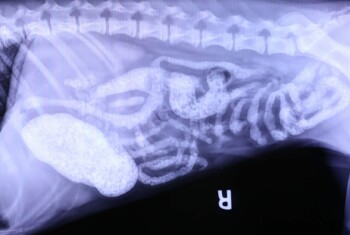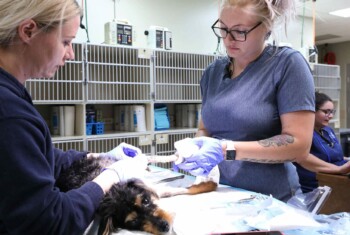CBD Pilot Test for Epileptic Dogs Finds More Study Needed
Cannabidiol (CBD) for the treatment of drug-resistant epilepsies has proven effective for two rare epileptic syndromes in children: Lennox-Gastaut syndrome (LGS) and Dravet syndrome (DS).
These findings have led to the first FDA approval of a purified drug substance derived from cannabis (Epidiolex/Epidyolex by GW Pharma) in 2018 for the treatment of these syndromes, and research is ongoing about the use of this compound for the treatment of other epilepsies in humans.
Pilot Testing for Epileptic Dogs
These breakthroughs in pediatric neurology have made epileptic dog owners and veterinary neurologists even more curious about the potential use of CBD in epileptic dogs. On the canine research front, two pharmacokinetics studies have been published and the results of a preliminary study regarding the use of CBD for epilepsy treatment in dogs were published in JAVMA during the 2019 summer. The author, Dr. Stefanie McGrath, a neurologist at Colorado State University, has presented those results at the last ACVIM conference in June 2019.
Results of Pharmacokinetics Studies
First, the pharmacokinetics studies have shown that a dose of 2 mg/kg BID in healthy dogs is absorbed, eliminated, does not change CBC and biochemistry parameters and does not cause adverse effects in dogs. Also, between oral microencapsulated oil beads, oral CBD-infused oil, or CBD-infused transdermal cream, it was established that oral CBD-infused oil provides the most favorable pharmacokinetic profile and that exposure is dose-proportional in dogs.
Most importantly, the pilot randomized blinded controlled clinical trial that included nine dogs in the CBD group (treated with 2.5 mg/kg PO BID of CBD oil, in addition to ongoing antiepileptic drugs) and seven in the placebo group, showed that ″dogs in the CBD group had a significant (median change, 33%) reduction in seizure frequency, compared with the placebo group. However, the proportion of dogs considered responders to treatment (≥ 50% decrease in seizure activity) was similar between groups. Plasma CBD concentrations were correlated with reduction in seizure frequency.″
The conclusion of the author was that since the reduction in seizure frequency was correlated to the CBD concentrations (i.e., dosing), perhaps a higher dose of CBD would increase the proportion of responders. Further investigations will hence be performed using a higher dose of CBD in a larger group of epileptic dogs and this study is ongoing at Colorado State University.
Finally, it is interesting to note that dogs in the CBD group had a significant increase in serum alkaline phosphatase activity during the course of the study but did not develop other adverse behavioral effects.
Conclusions
In conclusion, studies about CBD use in dogs are still very limited at this time, but they have shown that a standardized CBD oil product can be metabolized efficiently and safely in dogs for the most part (although an increase in ALP might be a complication to investigate further).
Additionally, there is promising evidence that CBD has an effect on seizure frequency in dogs in the treatment of epilepsy. However, the only valid pilot study that has been conducted thus far did not identify a significant difference between treated and placebo groups with the dose used in the study, so at this time, CBD should not be recommended by the veterinary community as an adjuvant treatment for epilepsy until evidence of efficiency is obtained.


